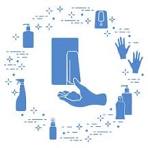
Sanitation plays a vital role in maintaining good health by preventing the spread of harmful germs and bacteria. Cleanliness and hygiene practices can help strengthen the immune system, reducing the chances of infections. This article explores the connection between sanitation and immunity, highlighting how proper hygiene supports overall health.
What Are Germs and Why Should We Worry About Them?
Germs are microscopic organisms that can cause infections and diseases. They come in many forms: bacteria, viruses, fungi, and parasites. These tiny invaders can be found everywhere—on surfaces, in the air, and even inside our own bodies. While many germs are harmless, others can cause illnesses ranging from a simple cold to more serious diseases like pneumonia or stomach infections.
When germs enter the body, they disrupt its natural functions and try to multiply. The immune system, our body’s defense mechanism, works tirelessly to recognize and destroy these invaders. However, when the body is overwhelmed by germs, the immune system may not be able to handle the load, and that’s when we get sick.
This is where sanitation comes into play. Keeping things clean helps to reduce the exposure to harmful germs, allowing your immune system to focus on other tasks instead of fighting off infections constantly.
The Role of Sanitation in Preventing Germ Spread
Sanitation refers to the practices of maintaining cleanliness and hygiene to prevent the spread of harmful germs. This can include:
- Handwashing: One of the simplest yet most effective ways to keep germs at bay is frequent handwashing. Hands can carry a large number of germs, especially after touching
- public surfaces, using the bathroom, or handling food. Washing hands with soap and water can remove dirt, bacteria, and viruses, preventing them from entering the body through the mouth, nose, or eyes.
- Clean Water Supply: Access to clean and safe drinking water is essential for good health. Contaminated water can carry harmful microorganisms that cause diseases like diarrhea, cholera, and typhoid fever. Ensuring a clean water supply is an essential aspect of sanitation that helps protect the body from these harmful pathogens.
- Proper Waste Disposal: Proper disposal of waste—whether it’s food scraps, trash, or sewage—is essential in maintaining a hygienic environment. If waste is left untreated, it becomes a breeding ground for germs. Flies, rodents, and other pests carry these germs, which can enter the body through food or water contamination.
- Clean Living Environment: Keeping the home and work environment clean helps minimize the risk of germs multiplying in corners, surfaces, or on fabrics. Regular cleaning and disinfecting of frequently touched areas like door handles, light switches, and kitchen counters can help eliminate harmful germs before they have the chance to spread.
- How Does Good Sanitation Boost Immunity?
- Now, you may wonder how all of this relates to immunity. Here’s how:
- Reducing the Burden on the Immune System: When you maintain proper sanitation, your immune system doesn’t have to work overtime fighting off constant exposure to germs. By reducing the number of harmful germs in your environment, you’re giving your immune system a break, allowing it to stay strong and ready to handle other threats.
- Preventing Infections and Illnesses: Good sanitation practices, like washing your hands, cleaning your living space, and ensuring safe drinking water, prevent the spread of diseases. Fewer infections mean your body doesn’t have to deal with unnecessary stress, which can weaken the immune system over time.
- Strengthening Gut Health: A clean environment helps in preventing harmful pathogens from entering the digestive system. When harmful germs enter the gut, they can cause issues like food poisoning, stomach infections, or inflammation. By keeping things sanitary, you reduce the chances of these infections, which in turn helps maintain a healthy gut. A healthy gut is essential for a strong immune system since a large portion of our immune cells are located in the digestive tract.
- Supporting Skin Health: The skin is one of the body’s first lines of defense against germs. If the skin is frequently exposed to bacteria or viruses due to poor sanitation, it can become irritated or infected. Clean skin allows the body’s natural defense barriers to remain intact and effectively protect against harmful invaders.
- Mental and Emotional Well-being: Did you know that a clean environment can also improve mental health? A tidy home can reduce stress and anxiety, contributing to overall well-being. When you’re not constantly worried about
- infections, you’re more relaxed, which is great for your immune system. Stress can weaken immunity, so maintaining cleanliness can have a more profound impact than we often realize.
- The Link Between Immunity and Hygiene in Different Populations
- While sanitation benefits everyone, certain populations benefit more significantly from it. Let’s look at how sanitation practices impact different groups:
- Children: Children, especially infants and toddlers, have developing immune systems. They are more vulnerable to infections, which is why good hygiene practices, such as washing hands before eating and after using the bathroom, can prevent many common illnesses like colds, flu, and stomach infections. Clean homes, clean toys, and safe drinking water are all essential for their health and well-being.
- Elderly: As people age, their immune systems naturally weaken. Older adults are more susceptible to infections and chronic diseases, so maintaining cleanliness in their environment is even more important. This includes sanitizing surfaces, ensuring proper waste disposal, and keeping living spaces dry and free from mold or other allergens that can worsen their health.
- Immunocompromised Individuals: Individuals with weakened immune systems, such as those undergoing cancer treatment, have HIV/AIDS, or taking immunosuppressive medications, are highly vulnerable to infections. Proper sanitation in their living environment helps minimize exposure to harmful pathogens that could lead to severe infections or complications.
- Pregnant Women: Pregnancy can change a woman’s immune system, making her more susceptible to certain illnesses. Proper sanitation during pregnancy can prevent infections that could affect both the mother and the baby. This includes keeping a clean home, consuming safe food and water, and practicing good hygiene to prevent any harmful microorganisms from entering the body.
- Conclusion:
- In the end, my dear, maintaining sanitation is not just a matter of cleanliness for the sake of appearances—it’s an essential practice for staying healthy. Proper sanitation prevents the spread of harmful germs, which in turn supports your immune system’s ability to protect the body. This means fewer illnesses, stronger immunity, and a healthier life.
- Remember, good hygiene habits like handwashing, a clean environment, safe drinking water, and proper waste disposal are all critical to living a healthy life. By practicing good sanitation, you’re not only protecting yourself but also those around you.
- So, don’t underestimate the power of cleanliness. It’s a simple yet powerful way to say “Goodbye Germs, Hello Health!”
- QnA Section

Ques 1: How often should I wash my hands to ensure they are clean?
Ans: It’s recommended to wash your hands regularly, especially after using the bathroom, before eating, and after touching public surfaces. At least 20 seconds with soap and water is sufficient to remove most germs.
Ques 2: Can I boost my immunity with sanitation alone?
Ans: While sanitation plays a key role in reducing exposure to germs, it is only one part of maintaining a healthy immune system. A balanced diet, exercise, enough sleep, and proper stress management also contribute to stronger immunity.
Ques 3: How does poor sanitation affect the immune system in children?
Ans: Poor sanitation can increase children’s exposure to harmful germs, making them more susceptible to infections. A clean environment reduces the risk of illnesses and helps ensure that children’s immune systems aren’t constantly under strain.
Ques 4: What are the signs that my immune system is weak?
Ans: Frequent infections, prolonged recovery times from illnesses, or chronic fatigue are common signs of a weakened immune system. Maintaining sanitation can help reduce the likelihood of infections.
Ques 5: Is it necessary to sanitize surfaces every day?
Ans: Yes, particularly in high-touch areas like doorknobs, kitchen counters, and phones. Regular cleaning helps to minimize germ spread and maintain a healthy environment.